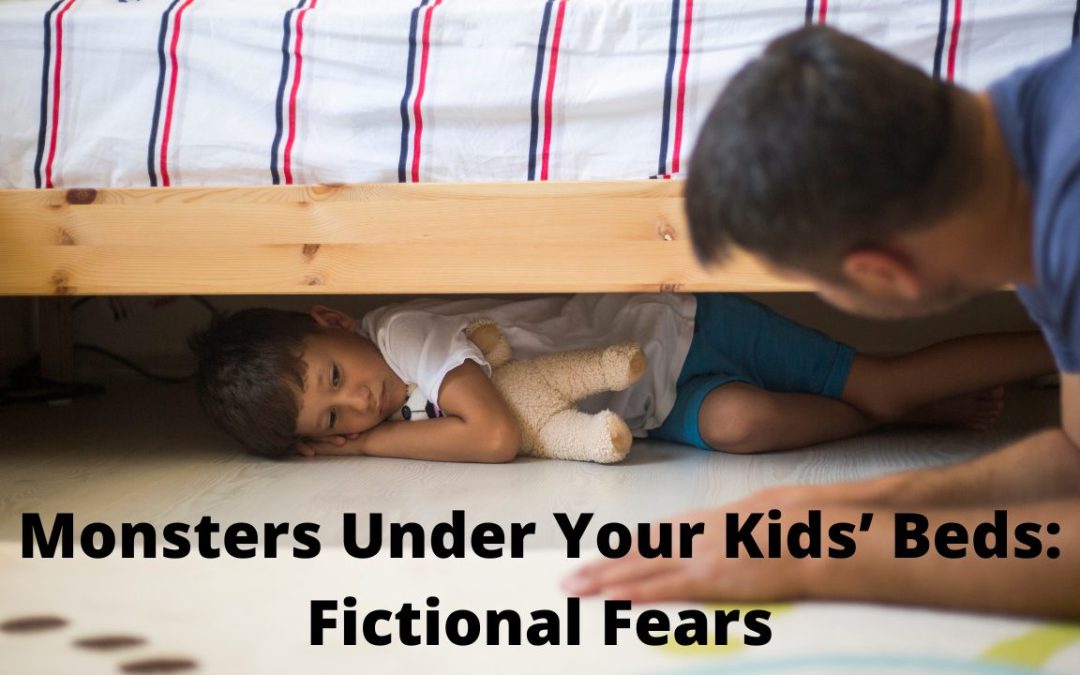You may recall when you were younger and afraid of what might be underneath the bed at night, or in the closet. It can be hard as children to navigate different fears, and figure out which one is valid and which one is rooted in something that doesn’t even exist. If your child is struggling with keeping fiction out of their real lives, then these tips and tricks may help you!
Explaining Fictional Fears
It’s far too easy for most children to not separate fact from fiction, especially with how easy it is to incorporate the fantasy world into the real world. Usually, children outgrow this phase through explanation from adults and seeing with their own eyes how unfounded their fears are. But some children can struggle with this, or may refuse to see what isn’t real. Make sure you’re talking with your child often about the differences between reality and fiction. Even more important is showing or telling them how to tell the difference as well, since there’s a lot of false advertising and information available everywhere. This can make it difficult for most children to figure out what’s false, especially if they don’t have anyone helping them. Explain how it’s highly unlikely that there’s a monster under their bed for however many reasons you need to calm your child down, then you also get down and look under the bed together to solidify these thoughts for them. Many children may not fully understand something until they’re shown, so some parents can talk until they’re blue in the face and make no progress.
Be A Comfort
And remember that just because you know what’s real and what’s not, doesn’t mean your child won’t pick up on these clues either. It can be easy for us to know when something is fake because we’ve developed that understanding of reality already, but children are typically living in more of a fantasy world than most. As kids grow, they begin to realize what’s real and what’s not, and get used to distinguishing these items. Some children develop this early while other’s will be much older, so be patient. Don’t automatically assume they know, so be prepared to explain. And make sure you are not making a big production of what they don’t know is fantasy, as you’ll want to be comfort for them. If they’re scared of something in the house or at school, it’s going to affect their everyday routine. They’re going to be scared, and want to be comforted while they sort through these situations, and if they don’t have anyone to turn to, it may make the situation worse.
If it’s a high fear of individual items or animals, such as spiders or rodents, these fears aren’t necessarily going to go away. If speaking and demonstrating what’s real and not real with your child and they are still experiencing a high level of fear, it may be time to seek a therapist or other professional’s advice on the best course of action.
Katie Kyzivat

